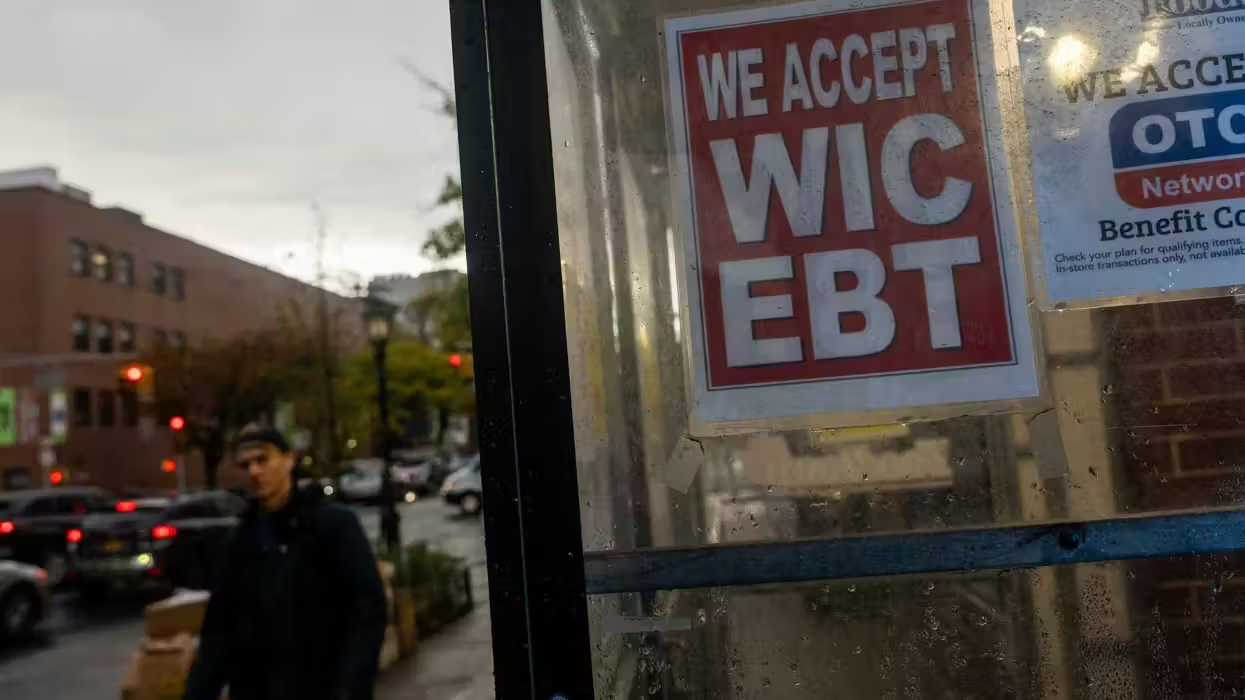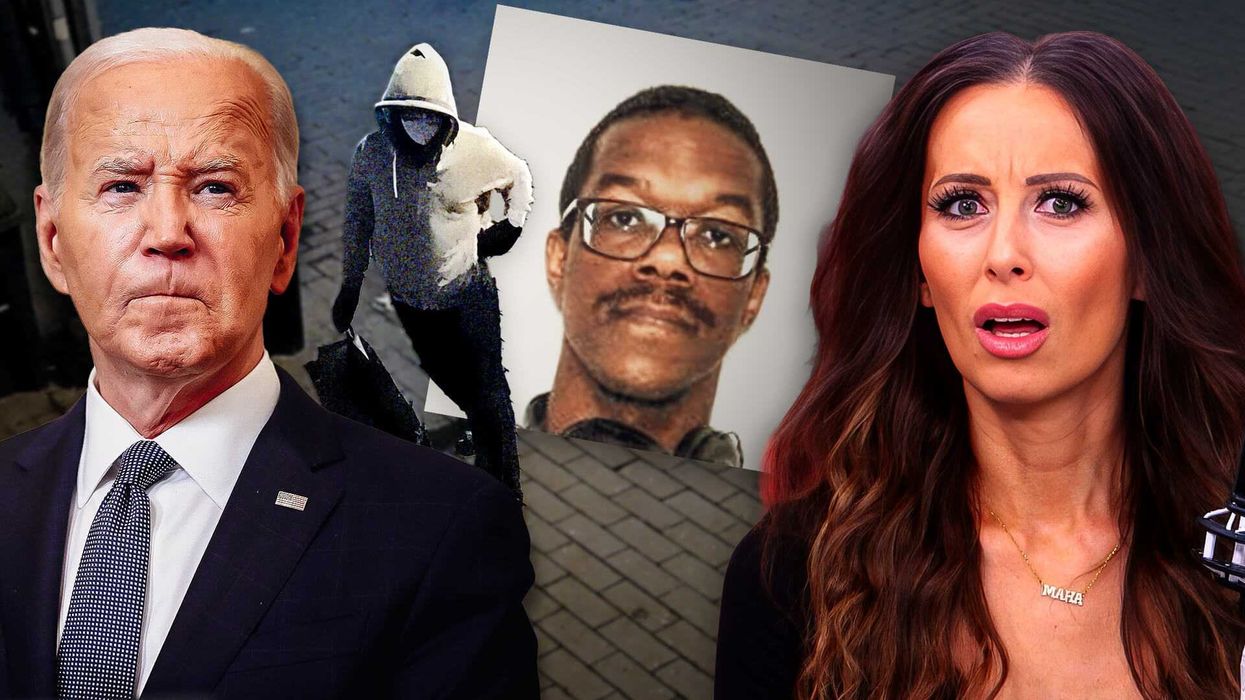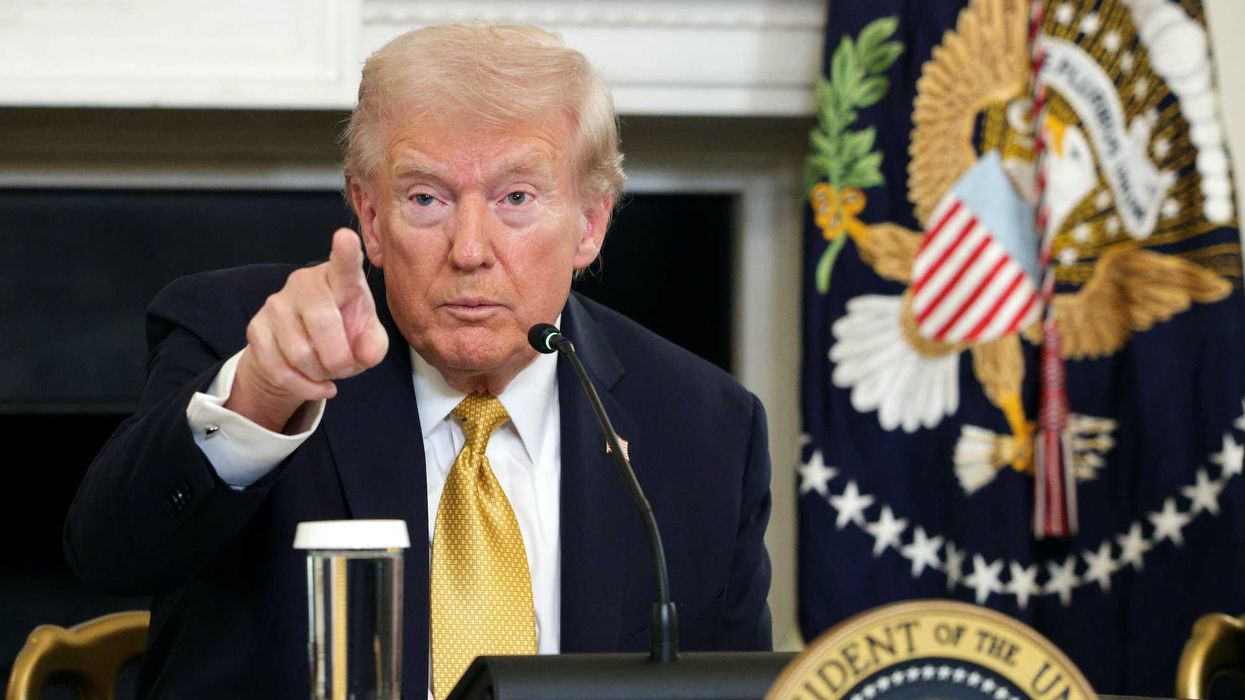
© 2025 Blaze Media LLC. All rights reserved.
"These people should be out of business."

With the downgrading of America’s credit rating from AAA to AA+, and with the subsequent dives and gains witnessed in the stock market, Americans are worried about the United State’s financial future.
Rightfully so.
These are indeed tumultuous economic times and the palpable ideological divide in politics does very little to assuage widespread concerns. However, not all is lost; there are some enduring, positive aspects and hard truths that should provide a little consolation.
For one thing, economists from both the Keynesian and supply-side school of economics have uniformly denounced S&P for downgrading America’s credit rating.
Dean Baker, co-director of the Center for Economic and Policy Research, criticized S&P for lowering the country’s credit rating after the United States actually raised the borrowing limit, pointing out that its decision was based partly on calculations that were later revealed to contain a $2 trillion error.
That is quite an error.
“This suggests that S&P had made the decision to downgrade independent of the evidence,” Baker said in a recent report.
Alan Clayton-Matthews, economics professor at Northeastern University, reiterated Baker’s disbelief saying, "It doesn’t make sense to me."
"The debt ceiling was raised and both sides, even as they were playing chicken, said the country would not default," Clayton-Matthews said in a recent story carried by The Boston Herald.
Furthermore, both Democratic and Republican politicians have heavily criticized S&P for having “acted stupidly.” Predictably enough, they have also seized upon the chance to pin blame on one another.
When asked about the downgrade, Harry Reid took the opportunity to say

that it "shows why leaders should appoint members who will approach the committee’s work with an open mind - instead of hardliners who have already ruled out the balanced approach that the markets and rating agencies like S&P are demanding.”
On the right side of the aisle, Michelle Bachman blamed the Obama administration saying, "The United States has had a AAA credit rating since 1917. That rating has endured the great depression, World War II, Korea, Vietnam and the terrorist attacks on 9/11... President Obama is destroying the foundations of the U.S. economy one beam at a time. I call on the

President to seek the immediate resignation of Treasury Secretary Timothy Geithner and to submit a plan with a list of cuts to balance the budget this year, turn our economy around and put Americans back to work."
But what is truly unique is that both Paul Krugman, an ardent leftist economist, and Stephen Moore, a staunch free market advocate, agree that the credit rating agencies and their downgrade are bunk.
“This was an absurd downgrade," said Stephen Moore, a member of the Wall Street Journal editorial board.
"The United States, for all of our fiscal problems, is still the safest place to invest for investors around the world and the idea that the United States government would ever default on its debt is an absurdity,” said Moore in a radio interview with WMAL 630 in Virginia.
Paul Krugman agrees with Moore’s opinion of S&P and other credit rating agencies.
"America is indeed no longer the stable, reliable country it once was. [But] S.& P. itself has even lower credibility; it’s the last place anyone should turn for judgments about our nation’s prospects,” Krugman wrote in an op-ed for The New York Times.
Moore agrees and said, “You know, this was political grandstanding by S&P and the credit rating agencies which, by the way, have about the least amount of credibility of any institution in America.”
"These people should be out of business. The credit rating agencies aren't the ones who determine the interest rates. That’s done by the global investor community,” Moore clarified.
However, both Krugman and Moore differ on their assessment of where the blame and solution lie. As expected, Krugman claims that the downgrade is the fault of the Tea Party, saying, “Because we have a powerful political movement in this country that screamed ‘death panels’ in the face of modest efforts to use Medicare funds more effectively, and preferred to risk financial catastrophe rather than agree to even a penny in additional revenues.”
He ends his article by claiming that, “The real question facing America, even

in purely fiscal terms, isn’t whether we’ll trim a trillion here or a trillion there from deficits. It is whether the extremists now blocking any kind of responsible policy can be defeated and marginalized.”
Moore adamantly disagrees with his conclusion.
“The Tea Party? They are the patriots around the country who have been warning us for three years that this was going to happen!” he said in his radio interview.
Moore also advocates heavy cuts in the federal budget and an overall easing of taxation as a solution to the problem.
Although it is frustrating to hear one political party accuse the other of having caused the downgrade, it is nevertheless refreshing to see both sides united against the questionable judgement of the credit rating agencies.
It is worth noting that these agencies are the same ones who gave high marks to lousy subprime mortgages before, during, and after the housing market collapsed. They have already demonstrated poor judgment and unethical behavior in the past. It is a wonder they were able to influence the debt ceiling talks at all.
Furthermore, we should also ignore the woe-is-me, hand-wringing mentality as witnessed in The Economist:
"While the crash of a high-speed train highlighted many of China’s ongoing weaknesses, it also revealed, in the vigorous reporting and commentary that followed in print and online, a nascent apparatus of accountability. Conversely, America’s ostensible success in avoiding default in fact highlighted the growing dysfunction of its political institutions. If these events are portents of things to come, then the day when China displaces America as the world’s economic superpower is closer than I thought."
We should look instead to assurances from men who, though differing in economic ideology, have been around long enough to know that America can weather the abuse.
"The truth is that as far as the straight economics goes, America’s long-run fiscal problems shouldn’t be all that hard to fix,” said Krugman.
Stephen Moore agrees. “We do have a big debt problem, there’s no question about that. But think about this past week: when you had all these tumultuous events in Europe and all the events in the middle east, where do people still go to when they want [financial] safety? They still come to the United States and they say so by treasury bills,” he said.
The United States had enjoyed a AAA rating (for what it is worth) since 1917, in part for having always stood behind its debt and paid its bills on time. As a result, U.S. Treasury bonds were considered the world's safe-haven investment. The happy truth: the still are.
S&P can say and do what they want, but the United States continues to be the most stable financial investment in the world. America is at a crossroads and she must choose carefully. If she decides to slash costs and lower taxes, she may very well be back on her feet in no time.
If, however, certain parties get their way, and the welfare state is grown and increased, well, one need only look to England and the euro zone to see how well that works.

What matters is not so much the "symbolic black-eye" of having a credit downgrading. What is important is how America responds to this crisis and how she decides to go forward.
The French political theorist Alexis de Tocqueville coined the term "American exceptionalism." Now is the time for America to prove just how exceptional she really is.
Want to leave a tip?
We answer to you. Help keep our content free of advertisers and big tech censorship by leaving a tip today.
Want to join the conversation?
Already a subscriber?
more stories
Sign up for the Blaze newsletter
By signing up, you agree to our Privacy Policy and Terms of Use, and agree to receive content that may sometimes include advertisements. You may opt out at any time.
Related Content
© 2025 Blaze Media LLC. All rights reserved.
Get the stories that matter most delivered directly to your inbox.
By signing up, you agree to our Privacy Policy and Terms of Use, and agree to receive content that may sometimes include advertisements. You may opt out at any time.






